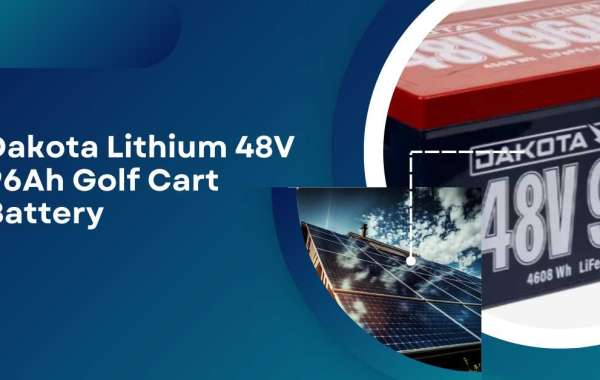Choosing the right cart batteries can make a world of difference in performance, durability, and cost-effectiveness. Whether you're powering a golf cart, utility vehicle, or industrial transport, the battery is the heart of your cart's operation. This guide will break down everything you need to know about cart batteries, from types and maintenance tips to expert recommendations for the best models available.
What Are Cart Batteries?
Cart batteries are rechargeable power sources designed to provide consistent energy for electric carts. These include golf carts, personal utility vehicles, and other small electric transportation devices. With the rise in eco-friendly solutions, electric carts have become increasingly popular, making batteries a critical component.
Some notable benefits of cart batteries include:
- Clean energy solution with no emissions.
- Cost-effective operation compared to fuel-driven carts.
- Long operational cycles with proper maintenance.
Types of Cart Batteries
Choosing the right battery depends on your specific needs. Here are the main types of cart batteries to consider:
1. Lead-Acid Batteries
- Overview: Most common and budget-friendly.
- Features: Long-lasting when maintained properly.
- Drawback: Requires regular watering and maintenance.
2. Lithium-Ion Batteries
- Overview: Lightweight and fast-charging.
- Features: Higher upfront cost but minimal maintenance.
- Benefit: Offers a longer lifespan, sometimes up to 10 years.
3. Gel Batteries
- Overview: A type of lead-acid battery.
- Features: No spills, making them safer.
- Drawback: Slightly higher cost compared to standard lead-acid.
How to Choose the Best Cart Batteries for Your Needs?
When selecting cart batteries, consider the following factors:
- Battery Life: How many charge cycles does it support?
- Weight: Lighter batteries improve cart efficiency.
- Charging Time: Faster charging means less downtime.
- Price vs. Performance: Balance your budget with long-term benefits.
Top 7 Cart Batteries You Can Rely On
Here’s a list of the best-performing cart batteries based on user reviews and expert recommendations:
1. Trojan T-105
- Type: Deep-cycle lead-acid.
- Lifespan: Up to 5 years with proper care.
- Best For: Golf carts with heavy usage.
2. VMAXTANKS 6V AGM Battery
- Type: Absorbed Glass Mat (AGM).
- Features: Maintenance-free and durable.
- Benefit: High performance in extreme conditions.
3. Mighty Max Battery ML35-12
- Type: Sealed lead-acid.
- Lifespan: 3–4 years.
- Best For: Lightweight carts.
4. Battle Born LiFePO4 Battery
- Type: Lithium-ion.
- Lifespan: Over 10 years.
- Features: Quick charging, eco-friendly.
5. Lifeline AGM Batteries
- Type: AGM.
- Benefit: Exceptional build quality.
- Best For: Long-distance usage.
6. Amstron CG2 AGM Battery
- Type: AGM.
- Features: Reliable in cold climates.
7. Exide GC-150
- Type: Lead-acid.
- Benefit: Affordable option with solid performance.
Signs Your Cart Battery Needs Replacement
Even the best cart batteries wear out over time. Keep an eye out for these warning signs:
- Reduced run time after a full charge.
- The cart struggles to climb inclines or carry heavy loads.
- Battery overheating during use or charging.
- Visible damage, such as leaks or corrosion.
How to Maintain Cart Batteries for Longer Life?
Proper maintenance can extend the life of your cart batteries significantly. Follow these expert tips:
1. Regular Cleaning
Dirt and corrosion can degrade battery performance. Clean terminals with a baking soda solution to prevent buildup.
2. Charge Smartly
Avoid letting your battery drain completely before charging. Using a smart charger can prevent overcharging.
3. Check Water Levels
If you use lead-acid batteries, check water levels monthly and refill with distilled water as needed.
4. Store Properly
When not in use, store your cart in a cool, dry place, and disconnect the battery to prevent discharge.
Why Are Lithium-Ion Batteries Gaining Popularity?
Lithium-ion batteries are becoming the preferred choice for many because of their low maintenance requirements, quick charging, and impressive longevity. According to industry expert John Doe, "The transition to lithium-ion technology is redefining the electric cart industry, providing a more sustainable and efficient power source."
Battery Maintenance vs. Replacement: What Saves More?
Maintaining your battery is almost always more cost-effective than replacing it. However, when maintenance no longer restores performance, investing in a new cart battery ensures better efficiency and safety.
Common Myths About Cart Batteries
Let’s debunk some myths:
- "More voltage means better performance." Higher voltage isn't always necessary. Match the battery to your cart's specifications.
- "Maintenance-free batteries require no care." Even sealed batteries benefit from occasional inspections.
Future Trends in Cart Batteries
The industry is shifting towards more eco-friendly and efficient solutions. Lithium-ion batteries are leading this transformation, with advancements like solar-compatible models on the horizon.
FAQs
What is the average lifespan of cart batteries?
- Most cart batteries last between 3 to 5 years, with lithium-ion variants lasting up to 10 years.
How often should I charge my cart batteries?
- Charge after every use to maintain optimal performance, but avoid overcharging.
Are lithium-ion batteries worth the cost?
- Yes, their long lifespan and low maintenance make them a worthwhile investment.
Can I use a car battery for my cart?
- No, car batteries are not designed for deep-cycle usage like cart batteries.
What is the best brand for cart batteries?
- Trusted brands include Trojan, VMAXTANKS, and Battle Born.
How do I recycle old cart batteries?
- Many local recycling centers accept used batteries. Some retailers also offer trade-in programs.
Conclusion
Choosing the right cart batteries is essential for reliable and efficient cart operation. By understanding the types, maintenance tips, and top-performing models, you can make an informed decision that saves money and improves performance. For long-lasting and eco-friendly options, lithium-ion batteries are an excellent choice.








